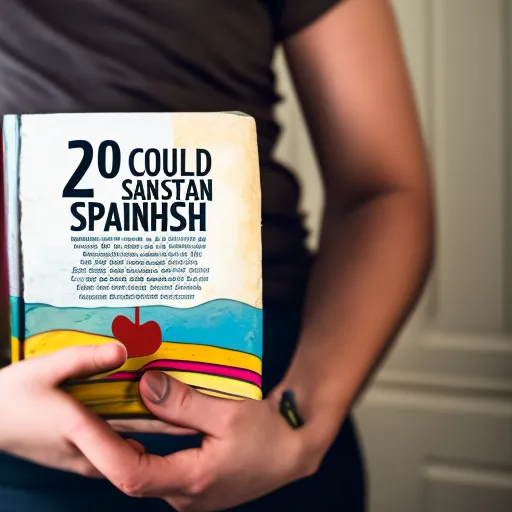20 ways I could learn Spanish
OK, I've finally settled on a clear language learning goal. I'll be learning Spanish, although there will be a little bit of Russian learning on the side as well (my girlfriend occasionally speaks to me in Russian).
It's likely I'll move to Barcelona, so I'll try to mainly consume Castilian Spanish. Thankfully, it seems most people in Barcelona speak Spanish and not Catalan.

1. StoryLearning
I like the concept behind Olly Richard's StoryLearning method. I might buy one of his courses, and in the meantime I'll probably read Short Stories in Spanish.
2. Luca Lampariello
I'm also quite intrigued by Luca Lampariello's method. Maybe I'll try his course in the future.
3. Watching The Simpsons
I've been watching The Simpsons since I was a child, which will probably help. Any tips on how to learn a language through TV shows? Apparently, using subtitles in your native language is not recommended except maybe at the very beginning. I've read that a good way to do it is to watch an episode with English subtitles first, and then watch it again with subtitles in your target language (and eventually maybe get rid of subtitles altogether).
4. Watching FRIENDS
FRIENDS is another show I've watched many times over. And I met a guy who said it helped him a lot to learn Spanish.
5. LingQ
I've tried this app on and off for several languages. The interface isn't great, but I like the concept based on comprehensive input. Plus, you can add reading material yourself and use it just as you use other content on the app: this means I can import articles from the Spanish equivalent of The Onion and click on the words I don't know to help me understand. It's also a way to read the news in your target language.
6. Speakly
This is another language app that a lot of people praise. I don't know if I like it enough to use it regularly, but I've been paying for it for a while, so I should probably force myself for a month or two and see how it goes.
7. Podcasts
8. Tom Segura en espanol
I like comedian Tom Segura a lot. He also performs in Spanish (he's half Peruvian), and he has a Spanish-language podcast. He posts the videos on YouTube with subtitles. This is probably too advanced for a beginner, but I think it can still be a fun way to get some exposure to the language. Plus, the following tool might help.
9. Language Reactor
Chrome extension to learn languages watching YouTube and Netflix. I like the idea, so I've just installed it. I hope there will be such a thing for Disney+ as well, this way I'll use it for The Simpsons.
10. Private lessons
iTalki, Preply, etc.
Once I'm in Barcelona (assuming I do move there; I'll know next month), I could go for in-person lessons as well, which would be more pleasant.
11. Spanish conversation tables and language exchange meetups
In-person events.
12. In-person group classes
This is also something I might consider. I'm not used to this and I don't know if I would like it, but I suppose it would be a good way to keep myself accountable, learn some grammar, and meet new people.
13. One on one language exchange
The idea would be to get Spanish lessons in exchange for French lessons. I'm not sure about this one, because I think I'd rather pay with money than with my time. However, if saving the money seems worth it and/or I get along well with the person, it might be nice. It's also important to remember that monetary transactions change the nature of acts and of relationships. I remember reading about the fact that people who donate blood get less pleasure out of it if they get paid, for example.
Plus, I need to speak French more regularly because it's my native language and it's been deteriorating over the years. It also feels comforting to speak French at times, as if I'm digging into a more authentic, vulnerable part of myself.
14. TPRS lessons
A specific type of teaching method. It's something I've been quite intrigued by. This guy used this method to learn Arabic in 6 months. Of course, his Arabic might be poor, but the point is that he could communicate. And of course, he had a lot of time to spend on it. While one might think he's particularly smart, it seems that a lot of people get to conversational level in their target language with the right method and the right level of commitment. I guess it's about accepting imperfection.
15. Cut down on my favorite podcasts
I almost always listen to a podcast when I'm walking or exercising, sometimes also when doing other things. I'm going to have to resist the urge, because let's say I listen for one hour a day: if I dedicate that hour to a Spanish learning podcast instead, that can do a lot toward my progress.
16. Make funny content
This is something that's been on my mind for a while: what if being creative can help you learn a language? I recently experimented with this with my girlfriend: we created a TikTok and a Twitter account to post funny stuff related to Russian. However, I'm not actively learning Russian. Maybe I'll experiment with something similar with Spanish.
17. Watch Spanish-speaking stand up
Does anybody know any good ones?
18. Follow Spanish-speaking content creators
Maybe some funny and/or educational Instagram accounts. YouTube as well, but I suspect that Instagram might be more suitable: short form content that I can easily get translated.
Carmen Lynch is one example!
19. Follow Spanish teachers
These would be content creators that are specifically teaching Spanish.
20. Stick post-it notes on objects around the house
An acquaintance did this with French for his Spanish-speaking fiancée.

No comments.